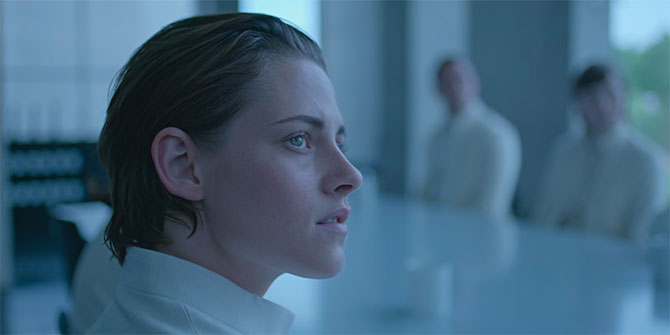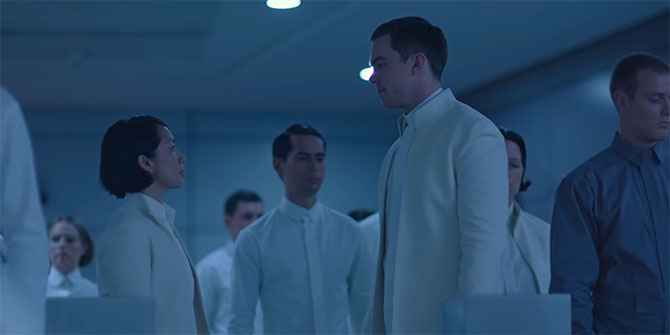It's a weird feeling when you don't hate a film but you definitely wish you could love it more. I've always wanted to watch Equals, a 2015 American sci-fi drama starring Nicholas Hoult as "Silas" and Kristen Stewart as "Nia." Despite my interest however, this film falls under that aforementioned category.
Together, Hoult and Stewart play a pair of doomed lovers living in a sterile, dystopian society where emotions have been eradicated through widespread gene-blocking therapy. Those whose gene-blocking therapy have failed are diagnosed with "SOS"—"Switched-On Syndrome"—where their emotions are viewed as an incurable disease. Once inflicted, the infected are sent to a facility called "The Den," where they die.
When Silas contracts SOS, he meets Nia, a Stage-4 sufferer who has been hiding her illness. While trying to process their burgeoning emotions, they fall in love. From the onset this seemed like a story I would be into; I'm actually really keen on sci-fi romances, especially if there's a fatalistic aspect to them. Unfortunately, this film fell short of expectations.
The Good

Equals is, at its heart, a very simple love story. It focuses on two people finding a connection through their shared isolation, and how that connection stabilizes the moods they've been told are no good. The beats of their love story are also very predictable in a comforting way: once they've gained a connection, their society seeks to tear them apart, as the antagonistic forces in most love stories do.
The music was incredible, and the performances of Hoult and Stewart were moving. Their connection on-screen felt authentic, as does the dichotomy between how they process their diagnosis. Hoult's Silas is struggling under the weight of his newfound emotions, and acts erratically because of it. Nia has been trying to hide her real emotions for ages, and is being crushed under the weight. This paradoxically leads to an emotionally deadening effect. As Nia helps Silas stabilize, and Silas helps Nia relieve the pressure of being alone, the two of them become healthier through this shared assistance. It's a wonderful commentary on the power of human connection.
Equals does delve into dark subject matter such as suicide and depression, but it never does it in an exploitative way. Nor does it feel like it's trying to posit that suicide is the only option when your loved one leaves you—as is sometimes the context in a love story like this.
In this futuristic dystopia where Nia and Silas live, those with SOS are seen as a burden on society. They are tacitly encouraged to kill themselves through physical isolation and a lack of indifference from the staff who run The Den. Sometimes—as a staff member of The Den later tells Nia and Silas—the nurses literally turn their backs when they see their patients are in acute distress. This is by design.
It felt very much like Equals was trying to make a commentary on how our society sometimes treats those with depression: how it tries to put them out of sight and mind because it makes us uncomfortable to deal with the raw vulnerability of someone who is so exposed.
The Bad

While I don't hate this film by any stretch of the imagination, it can be boring in parts, especially if you're a fan of movies that are a bit more action-packed. Love stories are great—and sci-fi stories with romances are even better—but my own personal preference is for romance to not be the only element. Unfortunately, in Equals, that was the case.
Equals is also the sort of film that's very internal: it deals with the emotions of the characters, and stories like that are best suited to books where the format allows for long, internal introspection. Films tend to be more external by the very nature of being visual.
The Verdict
The background details on this film are fairly standard, but when I was researching this movie's production history I discovered there was a bit of drama surrounding the costume design.
A costume designer who worked on the film, Abby O'Sullivan, accused Alana Morshead—the second-credited costume designer on Equals—of making false statements regarding the level of O'Sullivan's work.
